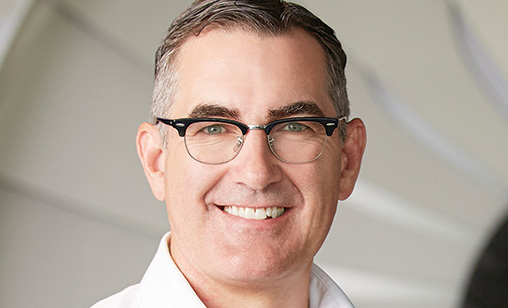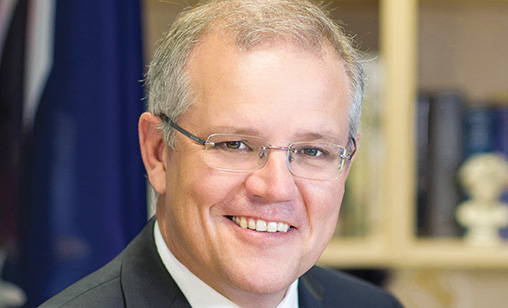News Backgrounder
Financial “White Knights” enjoin battle for Virgin Australia
Short of cash and deluged with debt, Virgin Australia (VA) is in voluntary administration, but the airline group’s management and its administrator are optimistic about its prospects. Associate editor and chief correspondent, Tom Ballantyne, reports.
May 1st 2020
As May arrived, interest in Virgin Australia (VA), now in voluntary administration, had become a stampede. Read More » At press time, administrator Deloitte Australia confirmed it had signed non-disclosure agreements with eight bidders who now have access to VA’s data.
The receiver said it also was negotiating with 12 other parties interested in VA. Indicative offers are due by May 15 and binding offers in mid-June. Deloitte partner, Vaughan Strawbridge, told the first meeting of the airline’s creditors he was confident of finding a buyer by July.
 |
One of the latest bidders to emerge is Australian mining magnate, Andrew “Twiggy” Forrest, who controls the country’s third-largest mining group, Fortescue Metals. He is reported to have spoken to investment bank Credit Suisse about a bid.
The large number of parties interested in acquiring VA must have been music to the ears of VA boss, Paul Scurrah, and his team, and a vindication of efforts to return VA to the air.
Last month, when it was announced the airline group would enter voluntary administration, he said: “For 20 years, Virgin Australia has brought strong competition to the skies of Australia. It has forced down airfares in excess of 37% since our inception.
“We intend to keep doing that by being around in a healthy, lean and fit state on the other side of voluntary administration. And we will continue to do that for decades to come.”
The biggest Asia-Pacific aviation casualty to date of the COVID-19 crisis, VA’s decision, announced on April 21, was no surprise to the industry. It has not made a profit for a decade and is carrying a debt mountain of more than US$5 billion.
And whatever cash it has is vanishing fast as most of its 130-strong fleet remained parked and unable to bring in revenue. It did not help that the Australian government gave the cold shoulder to the company’s overtures for a government backed loan of $800 million to carry the airline group through the COVID-19 crisis.
Despite the drama, the initial message is “steady as she goes”. Vaughan Strawbridge, leading the team to resurrect VA said there was an absolute commitment to run a process that will see a restructured and financially strong VA emerge, resulting in the company coming out of administration as soon as possible.
“We’re not planning any changes to the operations of the business,” he said. “Paul and his leadership team will continue to run and be in control, working with us as we go through the restructuring process,” he said. All staff will continue to be employed and paid and there were no plans for redundancies.
Most promising of all are the large of parties circling VA with an interest in the carrier. “We won’t go into specifics about those parties. Obviously, we have to keep these parties confidential, but there are in excess of 10 parties known to us who have a keen interest in being part of the restructure,” Strawbridge said.
 |
Besides Fortescue Metals, separate sources said they include local conglomerate, Wesfarmers, and banking and investment group Macquarie, Australia and New Zealand focused equity group, BGH Capital, in partnership with Australia’s largest superannuation fund, AustralianSuper, Indigo Partners and Boston-headquartered Bain Capital.
Melbourne Airport is pitching itself as the new headquarters for VA, a shift south from Brisbane for the carrier. Lindsay Fox, a member of one of the consortia interested in investing in VA, wants the company to re-locate to privately-owned Avalon airport, near Geelong, ironically the airport from where Jetstar Australia first flew.
In the closing days of April, the Queensland government said it would “stop at nothing to keep VA headquartered in the state, after it was revealed VA had been offered $200 million (US$130 million) to keep the carrier in Brisbane.
There also is a possibility Australia’s Federal government could become involved in some sort of collaboration with two governments: Queensland and New South Wales
“The intent is to avoid a prolonged, drawn out process,” explained Strawbridge. “There are a number of very sophisticated parties who have the capability to be part of the restructure of the company. We plan to run that process very hard to make sure it is as short a time as possible.”
An outcome is expected to be reached “over the next two to three months”.
One change that appears certain is that the airline’s current international shareholders are unlikely to be involved in the new airline. When it refused to bailout VA, the federal government argued the airline was 90%-owned by foreign shareholders with “deep pockets” and the only answer to VA’s problems was a market-based solution.
This position, said industry observers, seemed to ignore the fact VA’s shareholders also were in trouble. Abu Dhabi-based Etihad Airways, which holds 21% in VA, has lost $2 billion in the past two years. Given its failed investments in airberlin, Alitalia and India’s Jet Airways, it is hardly in a position to pump money into VA.
China’s HNA Group, whose flagship is Hainan Airlines, also is a 20% shareholder and is in deep financial trouble. Sir Richard Branson’s Virgin Atlantic Group, with equity of 10% in VA, is so weak financially it has asked the UK government for a financial lifeline to keep going.
Sir Richard receives $15 million a year from VA for use of the Virgin brand. He remained keen to participate in the restructure process. The fourth VA investor is China’s Nanshan Group, a conglomerate that owns Qingdao Airlines and a charter air business. It also is unlikely to cough up cash in the current climate. The only shareholder in a strong position is Singapore Airlines, with 20%, but it, like VA, has most of its fleet on the ground and is burning cash as the crisis continues. And, as Scurrah himself pointed out, in the past decade the airline group has pumped nearly $4 billion into VA.
After just a year in charge, Scurrah did not make any apologies for the position VA is in. “The fact is we did not trade into this position. This caught us by surprise in the same way it did any airline in the world. The oxygen supply of our business was cut off,” he said.
“Revenue was cut off by this crisis. It is not a reflection on the wonderful management team or the people that work at the VA group. There was good acknowledgement the plan we had going into this crisis was a good plan to make sure we turned a great airline into a great business.
“That progress was halted somewhat by this unprecedented event. So I am confident we can work with Vaughan and his team to make sure we have a plan to take this airline into the future and be as robust and competitive as we possibly can be.
“This has been incredibly challenging for the wonderful people at the Virgin Australia group. “This is not just something that is hurting Virgin Australia.
“We know it is hurting the industry globally. It is the worst aviation industry crisis we have seen in our history. We’re not immune to that. Our board made a very courageous decision to put the company into voluntary administration and to do so quickly with the intention of working with our administrator to come through.”
The reality for VA was that voluntary administration was inevitable. It was down to operating a single domestic route between Sydney and Melbourne. Eight thousand of its 10,000 staff is stood down.
The Australian government had given airlines about $450 million in reduced fees and charges, but these were only of value if planes were flying. It also has paid $100 million to underwrite VA and Qantas operating a “minimum domestic network servicing the most critical metropolitan and regional routes”. But because this money only covers the cost of operating the flights it does not improve VA’s financial position.
While it seems certain, given the interest in keeping the carrier alive, VA will emerge from administration, the question is what will Virgin Australia 2.0 look like?
Returning it to a profitable position almost certainly means the fleet will be reduced as international and domestic routes are trimmed back. Some redundancies are inevitable.
Budget subsidiary, Tigerair Australia, now grounded, may never fly again, although Scurrah has indicated he believed VA needed to be in a position to compete with Qantas in all market segments. Much of that, however, will depend on the new owner and how much they are prepared to pay for VA.